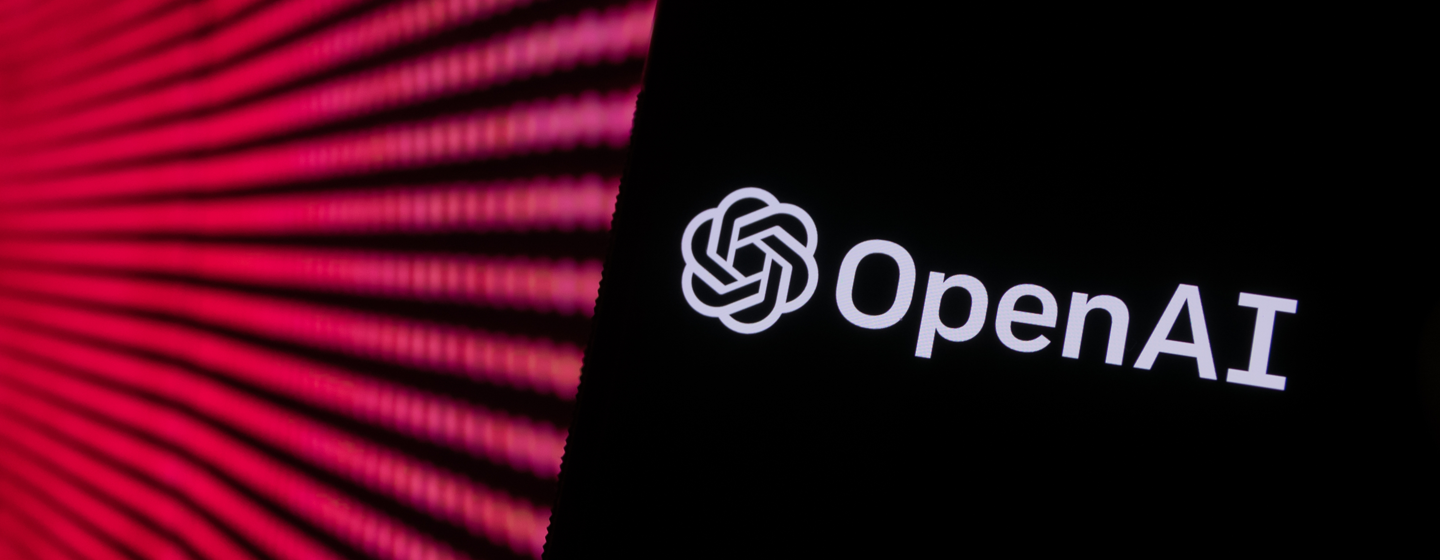AI in Education

How Will Artificial Intelligence Impact Education in New York?
With the launch of ChatGPT and other generative artificial intelligence programs in 2022, AI became more accessible than ever.
Immediately, concerns emerged from the education community, including how it could put student data privacy at risk, and make it easier to cheat. These concerns prompted New York City public schools to ban the website in January 2023. They have since lifted that ban, with Chancellor David Banks saying students “will work in a world where understanding generative AI is crucial."
Earlier this fall at SUNY’s first-ever AI symposium, Gov. Kathy Hochul announced $20 million to advance AI research in the state through a collaboration between University at Albany and IBM. Hochul is expected to include proposals for the future of artificial intelligence in New York in January’s state of the state address.
So, how do we teach the next generation of New Yorkers about AI, how to use it, what its risks and limitations are, and the power it has to revolutionize teaching and learning?
Dan Edwards, a Spanish teacher at Pine Bush High School and Adjust Professor at Marist College, has been using ChatGPT in his classrooms since 2022.
“We started hearing about this, we're seeing it on TV, having conversations, their colleagues were thinking, you know, what harm is this going to do? And how can we stop them from using it? And so, I came to the school year, like afraid -- what are they going to be dealing with? How are they going to be using it? But then, you know, as a language teacher, this is something we've been dealing with forever because we have Google translate. So, for so many years, we've been just trying to figure out, is this their work? Is this not their work? And so, I understand the fear that we're hearing from teachers and other departments,” Edwards says.
ChatGPT is a free AI chatbot developed by OpenAI and was released for testing to the general public in November 2022. Unlike previous AI chatbots that only respond based on predetermined prompts or commands, ChatGPT generates more human-like responses.
ChatGPT uses natural language processing, meaning it can understand English, Spanish or other human languages. Because of this, it can understand context, adapt to different communication styles and be customized to fit the priorities of the user. But AI’s machine learning capabilities and potential uses have prompted concerns over how it could impact human learning.
In May, the U.S. Department of Education issued a report called “Artificial Intelligence and the Future of Teaching and Learning.” They conducted a series of four listening sessions in June and August of 2022, which were attended by more than 700 attendees.
The Department's report acknowledged the need to address AI in education now, noting that “AI may enable achieving educational priorities in better ways, at scale, and with lower costs.” However, there are system-level risks and anxiety around the scale of possible unintended or unexpected consequences.
In New York, the state Board of Regents adopted the Computer Science and Digital Fluency (CSDF) Standards in 2020, and they are currently being implemented in schools. The CSDF standards require schools to develop curriculum to help prepare students to be safe and productive in an increasingly digital world. The standards include teaching digital fluency, which is the ability to evaluate technologies and transfer understanding to move fluidly between technologies. All curriculum decisions are made at the district level.
The rapid rise of AI has researchers rushing to comprehend the implications of AI in the classroom, for both students and teachers. Haesol Bae, assistant professor in the School of Education at UAlbany, is researching how AI can be taught in classrooms. She was hired as part of their new AI Plus initiative, a holistic approach to integrating teaching and learning about AI across academic and research programs.
“For this generation's media literacy, it is really important. But now we call it AI literacy,” says bae. “So, media literacy, data literacy and AI literacy, they're kind of go hand in hand in hand now because now every media is generated with AI technology.”
Educators are getting creative and saving time on tasks with AI, such as to create lesson plans, build rubrics, and personalize assignments for students.
Kevin Gaugler is Assistant Dean of the School of Liberal Arts and Professor of Spanish at Marist College. His research is in computer-assisted language learning. He has used Chat-GPT 4 to host a conversation between students and a virtual ‘Don Quixote’, give real time feedback to students, and help start a conversation in Spanish based on an image.
For Gaugler, ChatGPT “raises the bar,” making him reconsider the ways he assesses his students and changing his teaching methods. “One thing we talk about in education is differentiated learning. To really meet the students at their individual needs. And this tool, I see a lot of potential in being able to do that,” Gaugler said.
There are educators who oppose AI technology in the classroom. Nearly half of educators who responded to a recent EdWeek Research Center survey said AI would have a negative or very negative impact on teaching and learning in the next five years.
The US Department of Education’s report cites concern over “algorithmic discrimination,” or systematic unfairness in the learning opportunities or resources recommended to some populations of students.
Administrators also have to ensure websites they use in their district comply with federal and state privacy laws such as the Family Educational Rights and Privacy Act (FERPA) and Education Law Section 2-D in New York.
"When you use AI, that means you are collecting a lot of data, and you are tracking all the patterns. Then we have to know where does the data go and who has access, and who has a right to use that. So, there are lots of decisions to be made, you know, for that data privacy,” says Bae.
According to a national poll by Common Sense Media released this spring, more than half—58 percent—of students ages 12 to 18 have used ChatGPT. 85% of students surveyed believe that ai programs will have a positive impact on education.
Logan Norton-Lapsley, a senior at Pine Bush High School and student in Dan Edwards’ Spanish class, used ChatGPT to revise his college essay after using the tool in class, saying, “I went to Chatgpt and plugged in my essay, and pretty much talked to it like a person, having it revise my essay,” he said. “It can do things that other people can't necessarily do for me. When I did that, it gave me connections between topics. For example, chess and engineering – two completely different topics I would have never saw the connection for, and it gave me that.”
Nearly a third of college students have used ChatGPT to complete written homework assignments, with 60 percent saying they use the program on more than half of their assignments, according to a study published in January from the online magazine Intelligent.
Jacob Gresens, a sophomore at Marist College and student in Kevin Gaugler’s class, says “I don’t want to use AI to do it because it’d be dishonest, but also because, I can do it myself and I should do it myself. This is why I’m here at school is to engage and be educated by people, not to ask a computer to do the stuff I’m supposed to be doing.”
The Center for Reinventing Public Education identified just two states—California and Oregon—that have offered official guidance to school districts on using ai in schools this fall. Another 11 states are in the process of developing guidance - New York is one of them. How policies are rolled out would be up to individual districts.
Dan Edwards says students will inevitably need to adapt to the emerging AI technology. “AI learns exponentially, right? And so, it's only going to get more intelligent. It's only going to play more of a role in our lives. Every day we see new programs coming out. I think that it's not only something that can help us in the classroom, but it's something we really need to start implementing so that our students are prepared."
Related
Explore the transformative role of AI in education. ChatGPT is reshaping classrooms, from language learning to essay assistance. Discover the benefits and challenges as teachers and students share their experiences.

New York Gov. Kathy Hochul Announces $10 Billion Partnership at SUNY NanoTech in Albany
SUNY NanoTech is getting a big boost that could help it become a national research hub.


